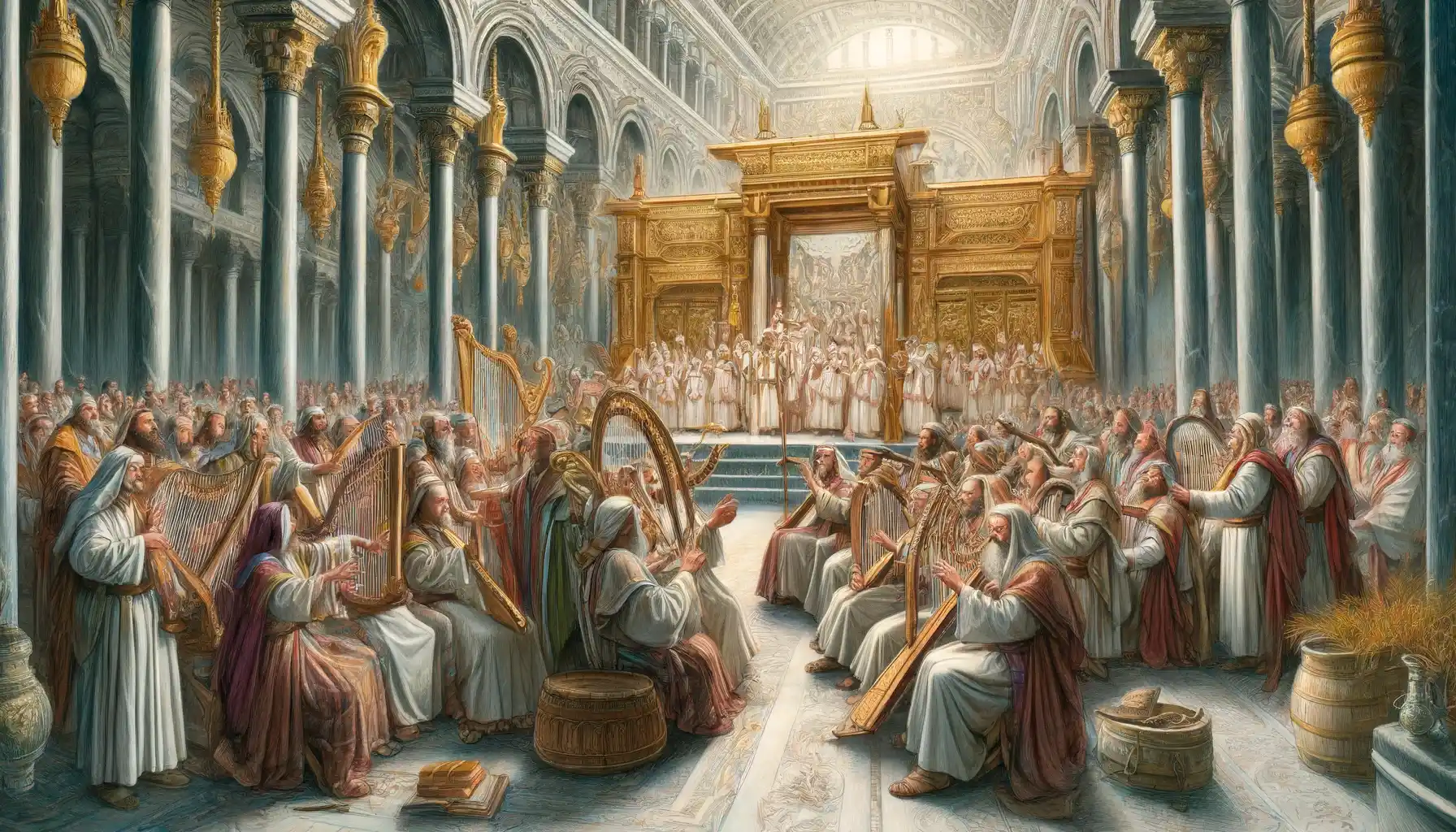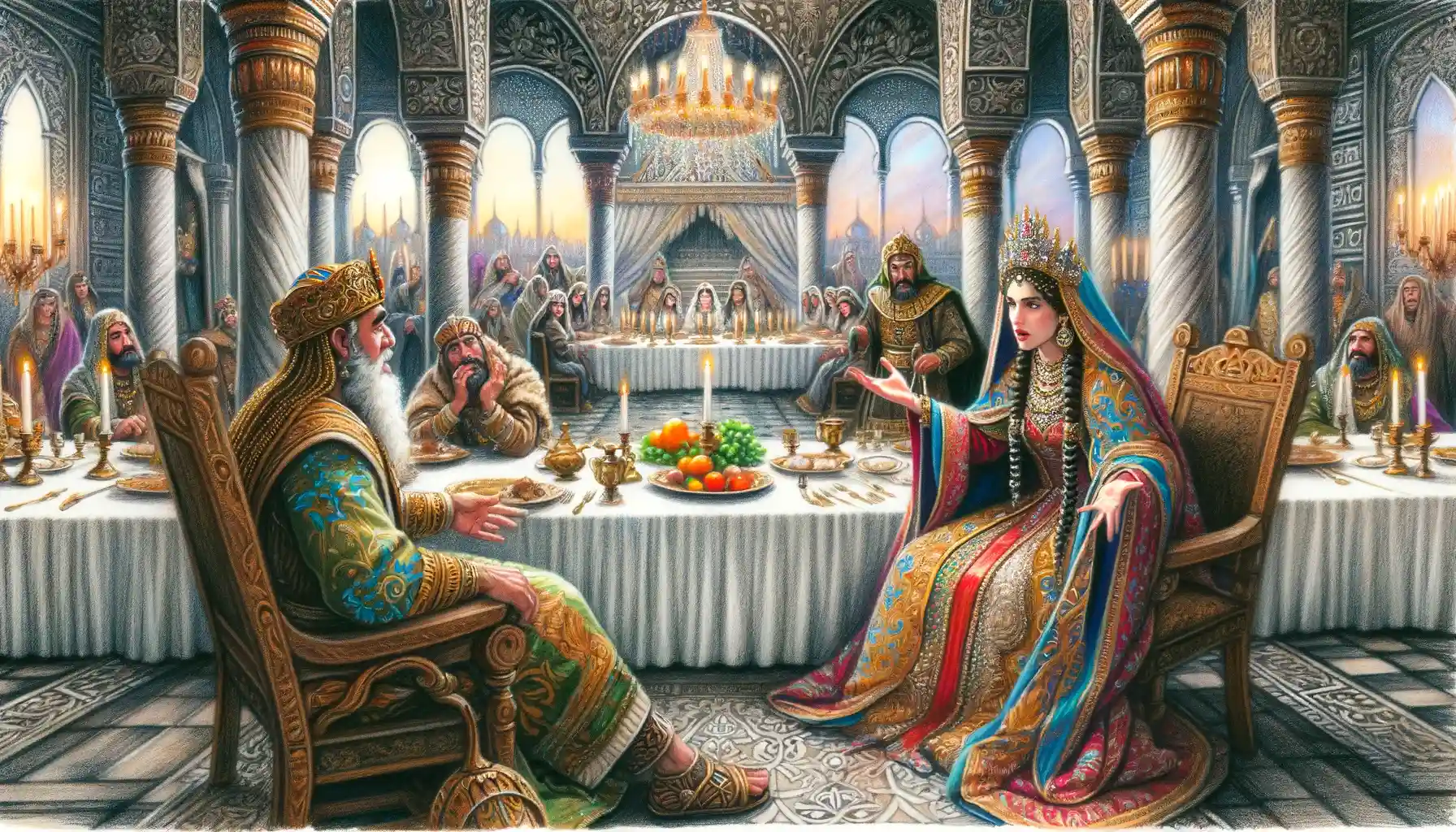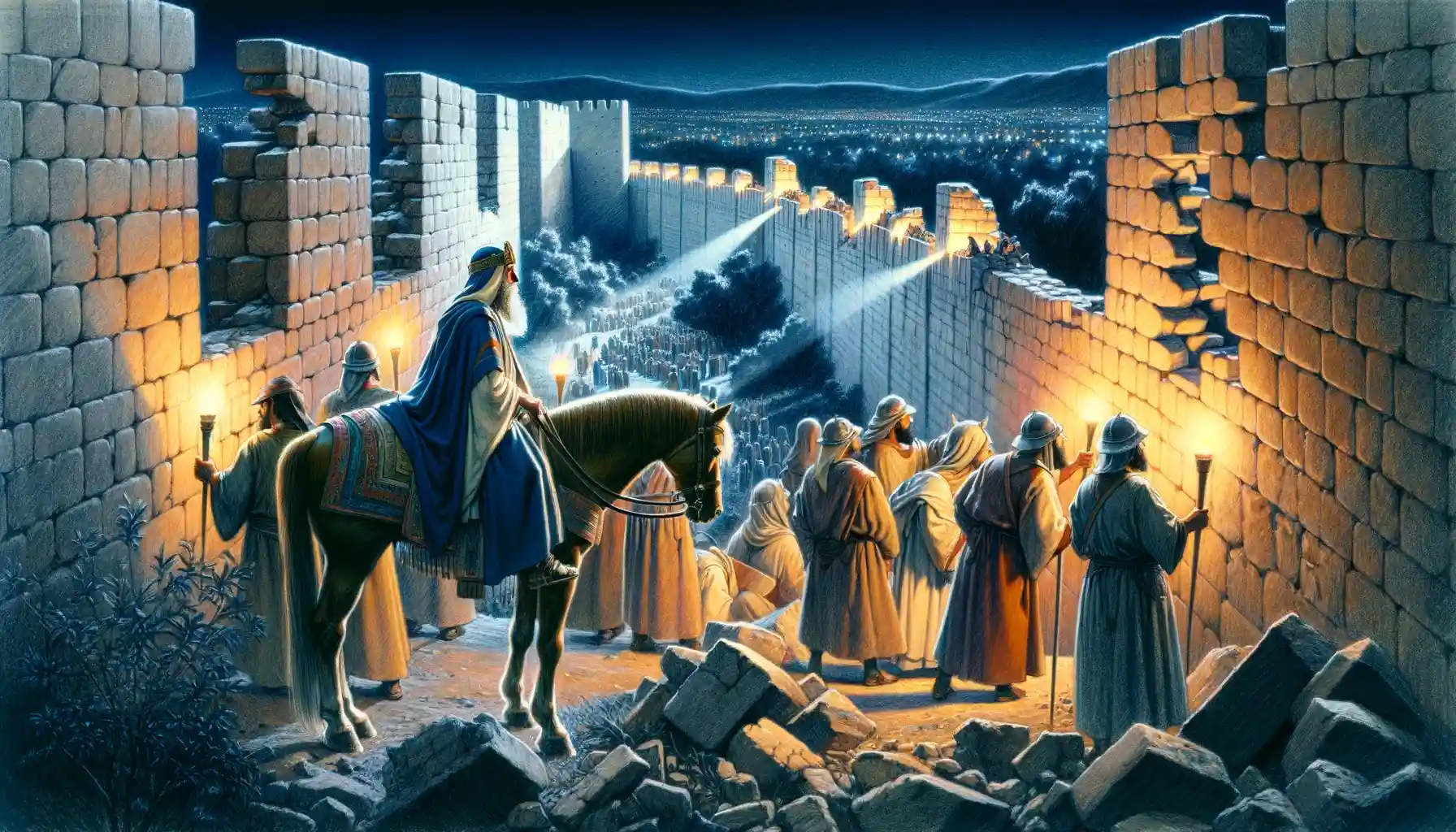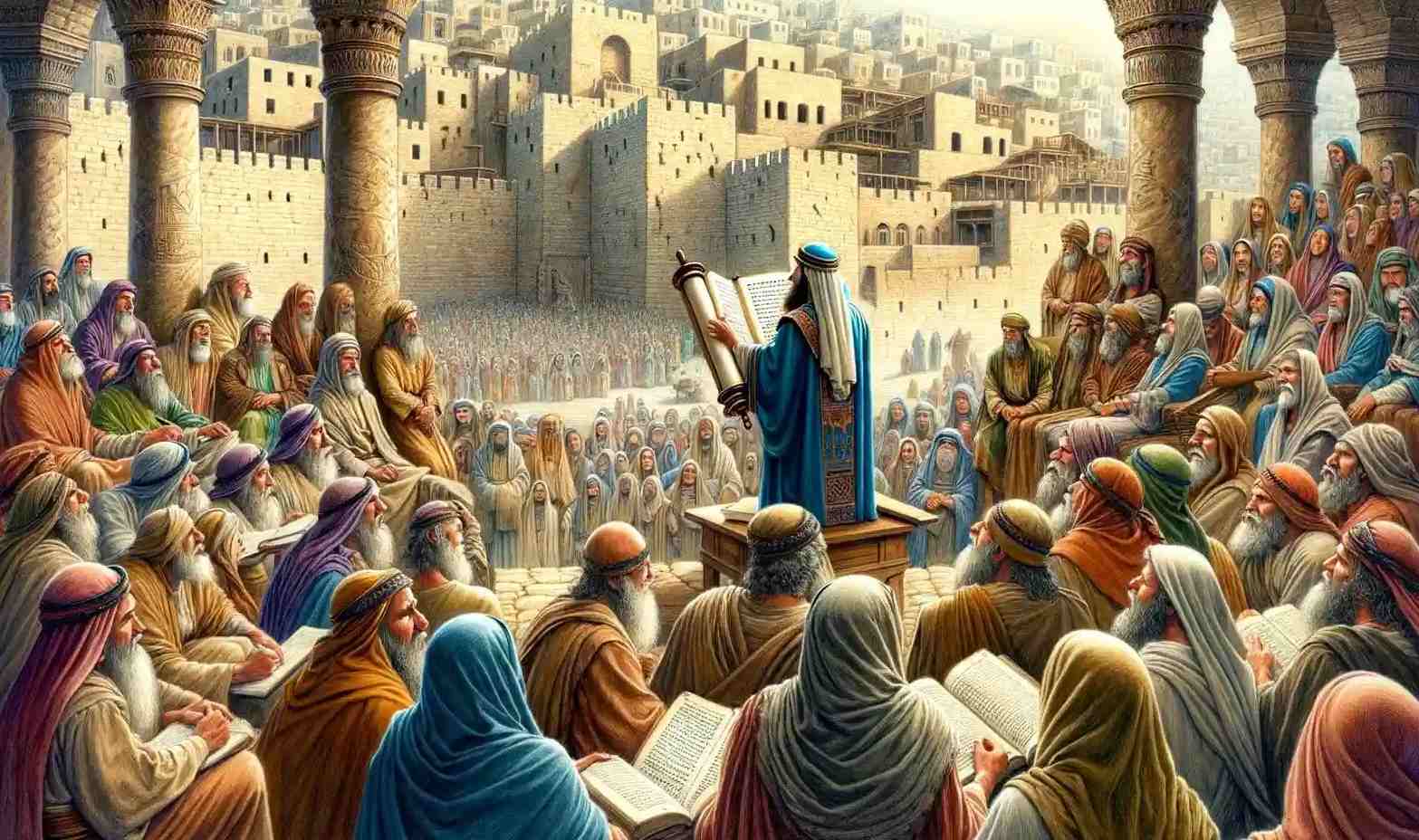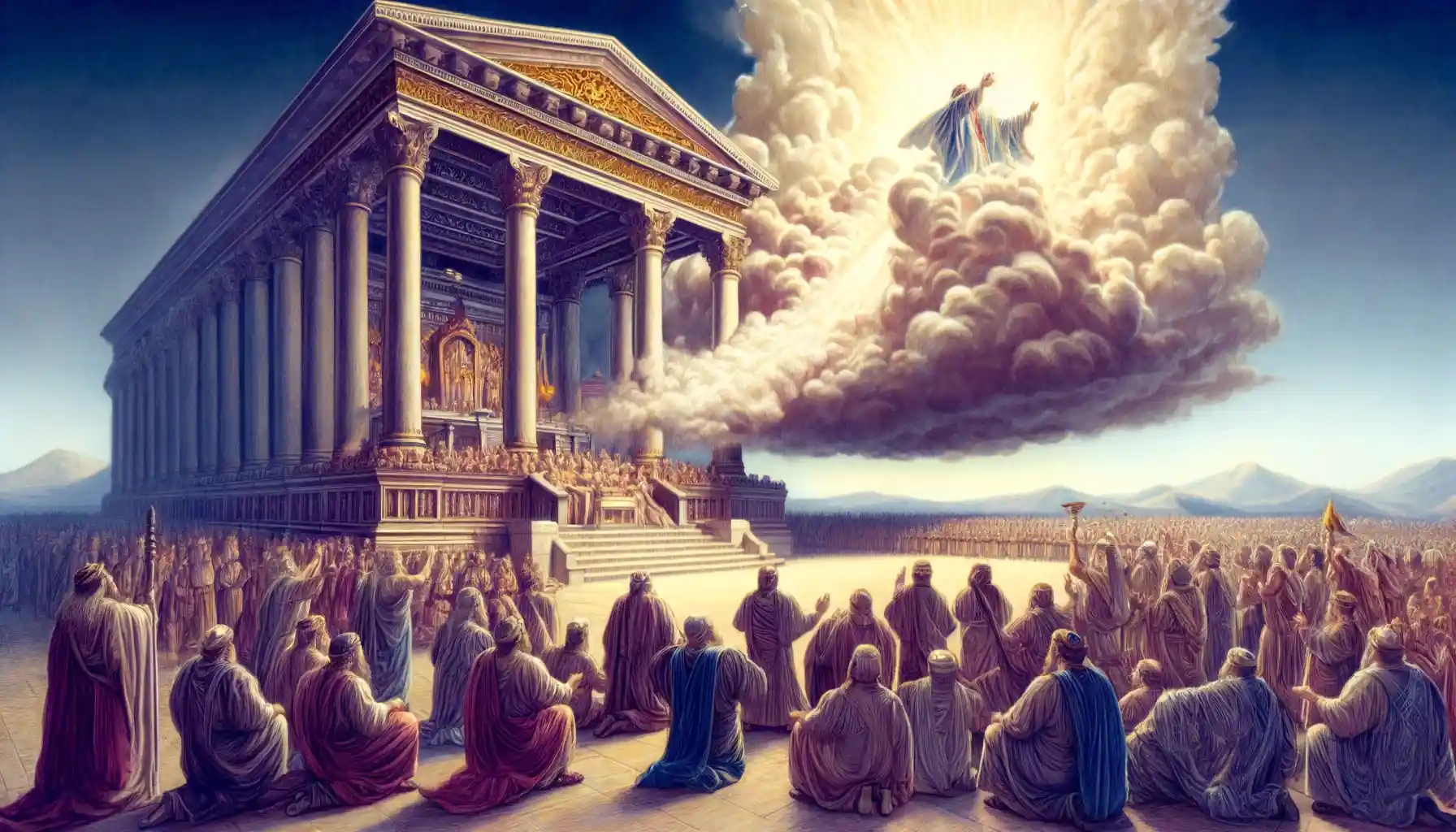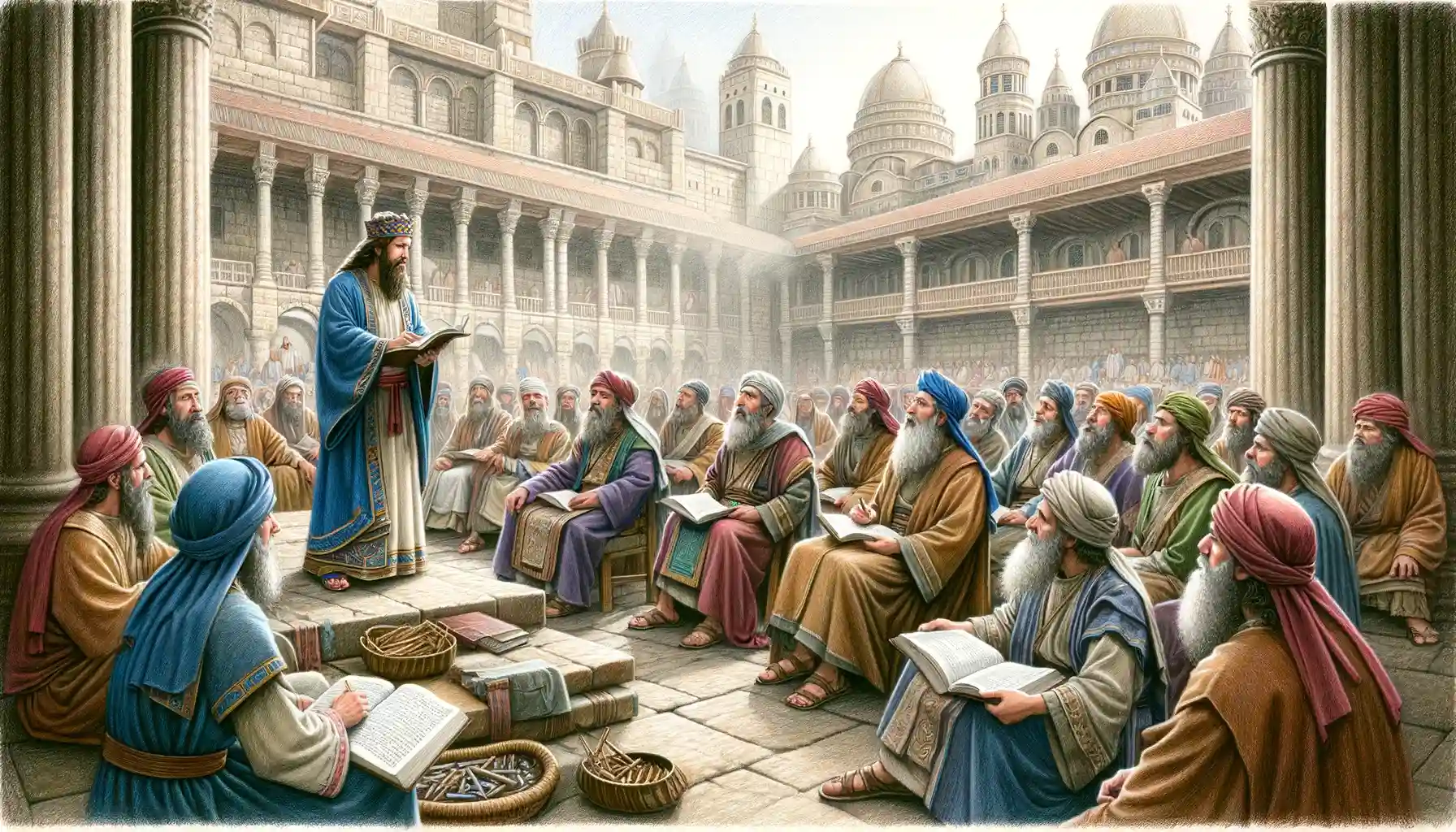The Book of Psalms remains one of the most cherished and widely read books in the Bible, rich in poetry and emotion, reflecting the depth and complexity of the human experience with the divine.
The Book of Job is a rich literary and theological work that invites reflection on some of life’s most profound questions, making it a timeless and universally relevant text.
Esther’s story resonates with its dramatic narrative and profound lessons about courage, identity, and providence, making it a cherished text in religious and cultural traditions.
The book of Nehemiah provides a narrative of physical and spiritual rebuilding that resonates with themes of resilience, communal responsibility, and the power of faith-driven leadership.
Ezra provides a narrative of hope and divine faithfulness, emphasizing that renewal is possible through adherence to religious foundations and responsive leadership.
2 Chronicles thus acts as a mirror reflecting the spiritual health of Judah through its leaders, offering lessons on the importance of righteous leadership and fidelity to divine commands.
1 Chronicles provides a unique perspective by reinterpreting Israel’s history to focus on theological and liturgical concerns, particularly relevant for the community returning from exile and rebuilding their identity.
2 Kings provides a sobering conclusion to the history of the Israelite kingdoms, serving as a lesson on the importance of fidelity to God and the devastating consequences of its neglect.
1 Kings provides a rich narrative that underscores the complexities of human leadership and divine governance, offering profound lessons on the consequences of adhering to or straying from divine laws.
2 Samuel provides a detailed portrait of one of the Bible’s most complex figures, King David, showing his rise to absolute power, his moral failures, and the impact of his reign on the nation of Israel.

